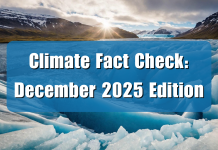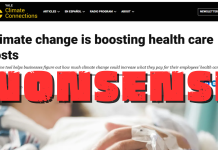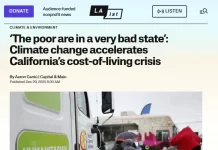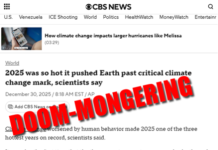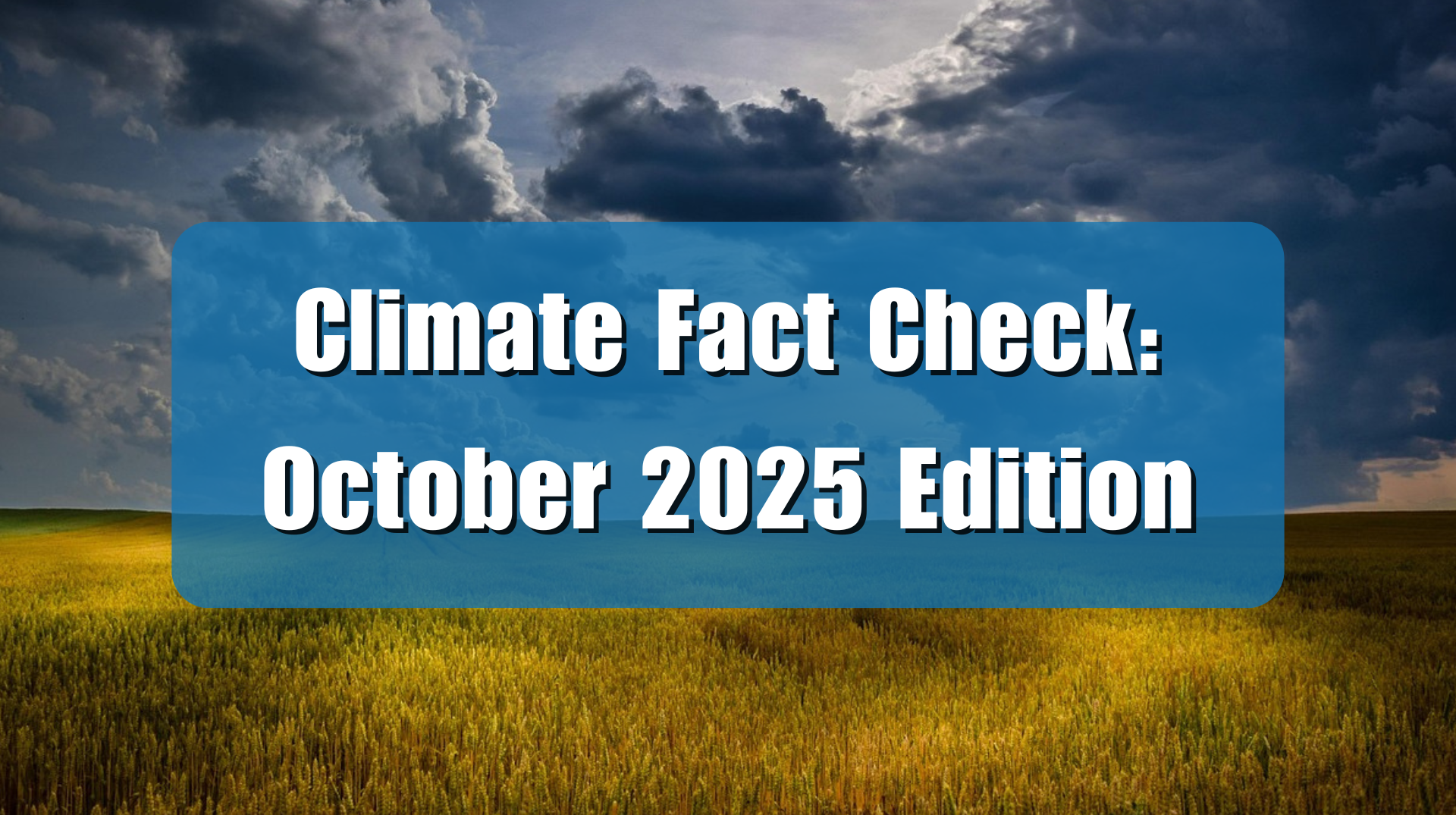A recent press release about a study from The Ohio State University (OSU) titled “Science coverage of climate change can change minds – briefly,” states “[a]ccurate beliefs fade quickly, especially if challenged.”
The Guardian newspaper covered the story, but they blew the “accurate beliefs” mantra in the first sentence of their story by stating: “People’s views of the climate crisis can be influenced by the media, according to new research.”
As The Guardian well knows, there is no “climate crisis.” It is purely a fabricated talking point that the media and climate activists use to make the modest warming we’ve seen over the past century into something that needs urgent attention, or as they like to opine, “act now!”
Interestingly though, OSU’s press release itself stumbles when it comes to reporting on science and its own study, as they use the term “accurate beliefs” with the word “accurate” appearing no less than eight times in a transparent attempt to bolster their worldview that the climate is changing for the worse as being the only factual viewpoint.
The press release says of the study:
The study will be published June 24, 2022, in the journal Proceedings of the National Academy of Sciences. Wood conducted the study with Brendan Nyhan of Dartmouth College and Ethan Porter of George Washington University.
Results showed that accurate science reporting didn’t persuade only Democrats – Republicans and people who initially rejected human-caused climate change also had their opinions shifted by reading accurate articles.
Though not linked in the OSU press release, the study was actually published on June 21st, 2022 and is available here. It seems OSU could not even get their press release to be accurate nor actually link to the study.
The idea of “accurate articles” when it comes to climate science reporting is truly laughable, and it the very reason that this website Climate Realism exists.
Climate science itself is fraught with inaccuracy, guesses into the future based on computer models that have been discredited by climate science itself, and outright incompetence when it comes to gathering climate data. Climate science is, in fact, fraught with uncertainties, which are regularly ignored or downplayed by climate activists, politicians, and the media. Worse, most reporters don’t even have science training that would enable them to spot such problems. As a result, what people often read in newspapers and websites is the exact opposite of accurate, but represent what OSU termed “accurate beliefs.”
Science isn’t based on a belief system, it is based on observations, experiments, and provable results. For example, computer climate models projections decades into the future can’t be proven in the present, and they remain nothing more than an educated guess into what climate might be like in the future. Yet many climate scientists and members of the corporate media treat these projections as “accurate,” hence the term “accurate beliefs.” In fact, nothing could be further from the truth. The vast majority of climate models projections of temperatures and trends in extreme weather events, have been refuted by hard data repeatedly.
The OSU press release suggests that people can be swayed from belief systems by facts.
“…it was significant that accurate reporting had positive effects on all groups, including Republicans and those who originally rejected climate change. But it was even more encouraging that it affected attitudes.
“Not only did science reporting change people’s factual understanding, it also moved their political preferences,” said Thomas Wood, associate professor at OSU and co-author of the study.
The real truth in the study can be summed up in how climate skepticism has a significant role in keeping so-called accurate beliefs in check.
But the positive effects on people’s beliefs were short-lived, results showed. These effects largely disappeared in later waves of the study.
In addition, opinion stories that were skeptical of the scientific consensus on climate change reversed the accuracy gains generated by science coverage.
This is exactly why Climate Realism exists, and is the reason why this website covers and rebuts the many factual inaccuracies that revolve around climate science and the media treatment of it every day.
Noted physicist Richard P. Feynman had it exactly right when he said of science:
The first principle is that you must not fool yourself and you are the easiest person to fool.
Climate science and the media has been fooling itself on climate scares for decades. The disasters predicted by climate models have not happened. Perhaps OSU should devote a study to that, grounded in data, in the context of “accurate beliefs.”


